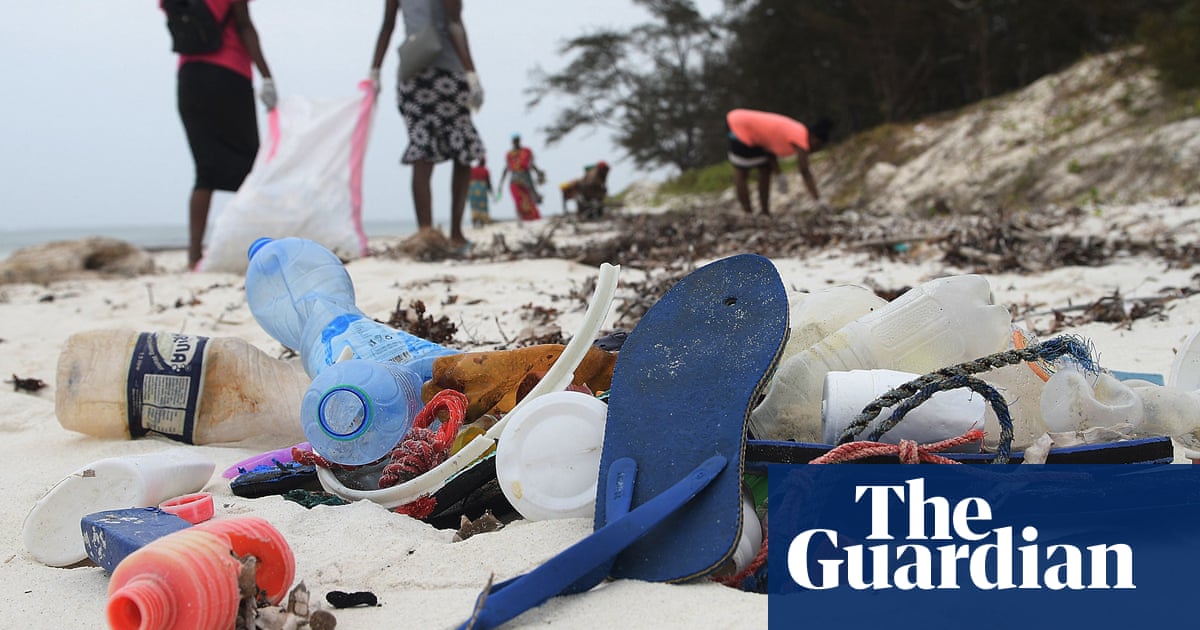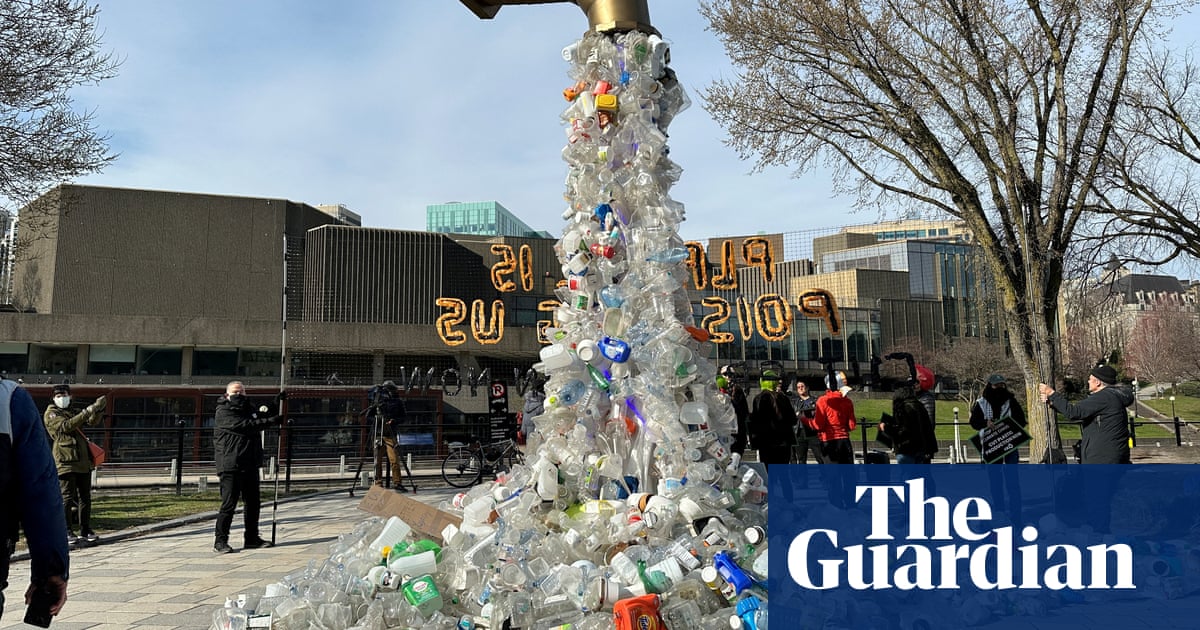
Government delegations will gather in Nairobi, Kenya, to hammer out details of what could be the first global treaty to tackle the plastic pollution crisis.
A key focus for the discussions on Monday will be whether targets to restrict plastic production should be decided unilaterally or whether states should choose their own targets; this is, say environmentalists, the “centre of gravity” for the treaty’s ambition.
At the last round of negotiations in Paris in May run by the international negotiating committee (INC) the US, Saudi Arabia, India and China favoured a “Paris-style” agreement where states would have the freedom to determine their own commitments, while others, including Africa and many developing countries, preferred strong global commitments.
But there are signs, some observers say, of a shift in the US’s position on this key issue, though details have yet to emerge. “The main takeaway for many environmental groups, after INC2 [the negotiations in Paris], was how bad the US position was, in terms of Paris-style voluntary commitments,” said Graham Forbes, the global plastics campaign lead for Greenpeace USA. He said there had been signals of a shift.
“We are going to be watching very closely to see how that plays out. We need to be speaking about rules and putting in place regulations.”
Last month, a “zero draft” version of the text published by the INC as the basis of negotiations over what the head of the United Nations Environment Programme has described as the most important multilateral treaty since the Paris accord in 2015. The goal is to have a formal treaty in place by the end of 2024. This third round of talks, in Kenya from 13-17 November, will mark the halfway point.
The “zero draft” captures many different perspectives from different governments. In the section relating to virgin plastic production, the draft sets out three options for working towards a reduction of primary plastic. The first involves a globally agreed target for reduction, (similar to the Montreal Protocol). The second involves global targets for production reduction, with nationally determined restrictions, similar to the Paris agreement. The third involves nationally determined targets and restrictions.
Tim Grabiel, a senior lawyer at the Environmental Investigations Agency, said it was hoping for something between option one and two: “The Montreal Protocol is generally agreed to be the best multilateral environmental agreement in the world,” Grabiel said. “And we know, from the Paris agreement, that option number two doesn’t work. If you look at the global stock-take, with the hottest summer on record, which is likely to be the coldest summer for the rest of our lives, the shortcomings of the Paris agreement are becoming clear.”
“This is the centre of gravity for ambition and we will see, next week, where countries fall.” But, he acknowledged, “the geopolitics are very difficult on this issue. The big oil and chemical companies have not budged at all.”
Plastic waste is accelerating, projected to almost triple by 2060, with about half ending up in landfill and less than a fifth recycled, according to a 2022 Organisation for Economic Co-operation and Development report.
Greenpeace is calling for a reduction of at least 75% of plastic production by 2040, in order to keep greenhouse gas emissions within a 1.5C scenario.
Eirik Lindebjerg, the global plastics policy lead at WWF, said the “zero draft” captures some “good concrete measures” that could make a difference, he said, as well as some vague, voluntary and non-binding clauses. Importantly, it creates a path for discussion of global bans that can be built on, he said.
“Despite the setbacks I’m very encouraged that a clear majority of countries have stated in the process that they want a strong treaty with binding rules and they have proposed a global basis for phase-outs of materials,” said Lindebjerg.
“There are large economic interests vested in keeping the status quo,” he said. “But you also have a strong public outcry and public pressure, against those interests. We will see who will win in the end.”
This month, the 60 ministers of the High Ambition Coalition to End Plastic Pollution, issued a joint statement, reaffirming their commitment to ending plastic waste by 2040 and for a treaty based on the full life cycle of plastics. They expressed a “deep concern” over projections of a near-doubling of mismanaged plastic waste and increase in production that would lead to a 60% increase in greenhouse gas emissions from the plastic system.












